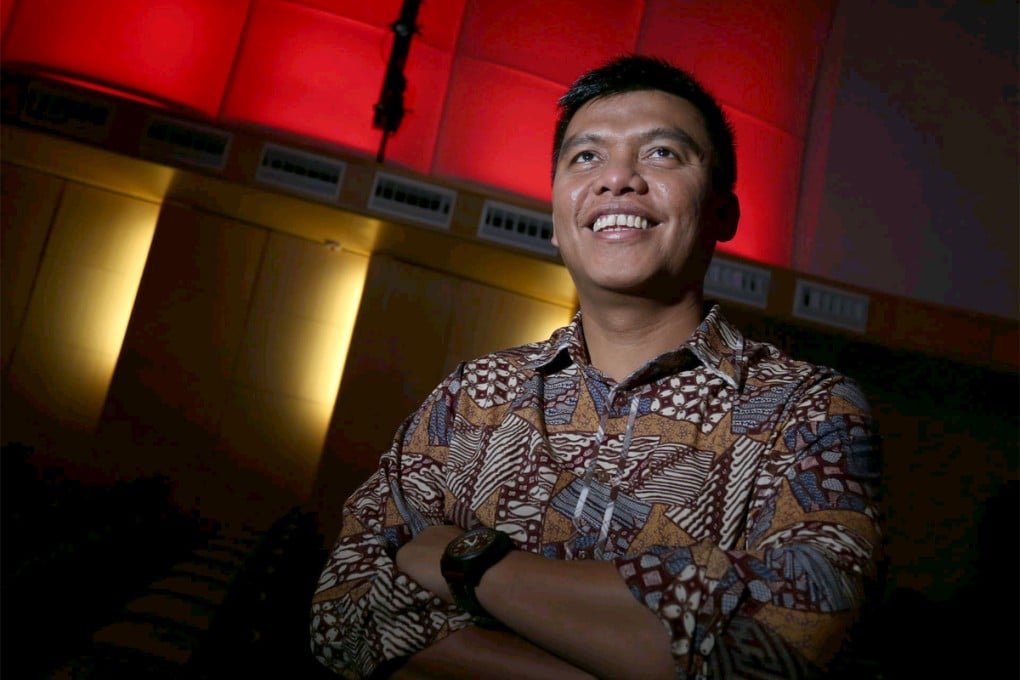My life: Noor Huda Ismail
The anti-terrorism expert tells Jo Baker about attending school with a future Bali bomber and helping jihadists to reform

A I was born in Yogyakarta, in Indonesia, and brought up in a strong Javanese culture. My dad is a Muslim but was raised in a Catholic family, and my mum comes from Muslims but her father was a puppet master, so knew a lot of Hindu stories. I was sent to Islamic boarding school when I was 12 to become a "good Muslim". This changed my life forever because a number of the students went on to be notorious Islamic militants who brought atrocities to the region. The founder of the school started (militant terrorist organisation) Jemaah Islamiah, and its members were involved in the first Bali bombing and the Marriott bombing (in Jakarta). For many people, terrorists are a faraway issue, but I have a very personal connection. I played football with them, I ate with them.
At first I was disappointed with the rudimentary school: a dingy dormitory, sleeping on the floor and no girls in my class. Boring! But I made a close friend and he said, "You can survive." He helped me learn maths and martial arts. When I was 17, I qualified to be part of a scholarship group that would go to Pakistan to study military training because I was smart and physically fit. During those years I believed that Islam was the best way to solve social problems. There was a struggle back then between Islam and the nationalists, and the (Indonesian) government made me sympathetic with Muslims by targeting them aggressively. In all these boarding schools there's a lack of critical thinking. We listened and obeyed. But, actually, I was different.
There's a lot of literature that explores why people leave the path of violence, and I talk to a number of people who have disengaged from it. There's no single moment (of revelation), but a series of tiny triggers. I'm a cheeky boy with (an inquiring mind) - this is how my mum raised me. And then I fell in love. I liked the daughter of a teacher and I took her out a few times. So the teacher decided I wasn't morally pure enough for the scholarship and I was disqualified. I asked myself, "What is wrong with falling in love?" That disillusionment is an important step. For example, one client said, "My group of mates wouldn't lend me money when my wife was pregnant, and I was helped by someone from a different religion, so I began to question [Islam]."
After graduating, I learned English by talking to foreigners. Meeting them made me start to question the ways (the school) had tried to brainwash me. I studied Arabic literature and communications in Indonesian universities and became excited by capitalism, so I then worked in a fancy job in marketing, with a flashy car and all that. But I needed more intellectual stimulation, so I left and got a job as a reporter with The Washington Post. And then there was the Bali bombing. I was covering that, and my schoolmate was arrested. Right there I decided that life is short and I wanted to use my time to work in this field. I studied International Security at (Scotland's) University of St Andrews. I did my fieldwork in Northern Ireland, which is where I got my big epiphany. I was working with an NGO helping to take former combatants into a normal life, and I thought if they can (do this) after 15 years of conflict, I can back home. I returned to Indonesia, used my own savings and set up the Institute of International Peace Building.
I work in prisons. If you look at the structure of terrorist (organisations), there are different roles: middlemen, cheerleaders, etc. But when you lock them all up together, prison becomes a spawning ground (for new cells). Most come out of prison and become leaders in the network. So that is where you must work to create new paths. (Former radicals) don't need pity or charity, they need equal opportunity. Many people embark on violence because they didn't have many choices. No one is born a terrorist. And I don't think that being locked in jail makes someone repent. They are ostracised and then have fewer opportunities. We're just going to see more problems, more conflict.
I train ex-prisoners and detainees in skills, and I use business to solve social problems. We have a car hire firm, for example. And I use food as a way to domesticate these terrorists, by running a restaurant. Some of them work there for three months after prison, almost like a halfway house. You need a place where you're accepted, an occupation, a place to wake up and somewhere to go in the morning. In the restaurant, when people enter you have to serve them, you can't discriminate. When you serve, you respect. If your food is not good, clients will complain and you must listen. It's good training! We keep it low-key for our customers - we don't market the restaurant as an ex-jihadi club. But I was surprised at the way people have helped. I met an Austrian chef called Christian when I was giving a talk in Europe, and one month later he visited. It was a surprise for me; Chef Christian teaching "Ahmed" and all these terrorists how to cook!